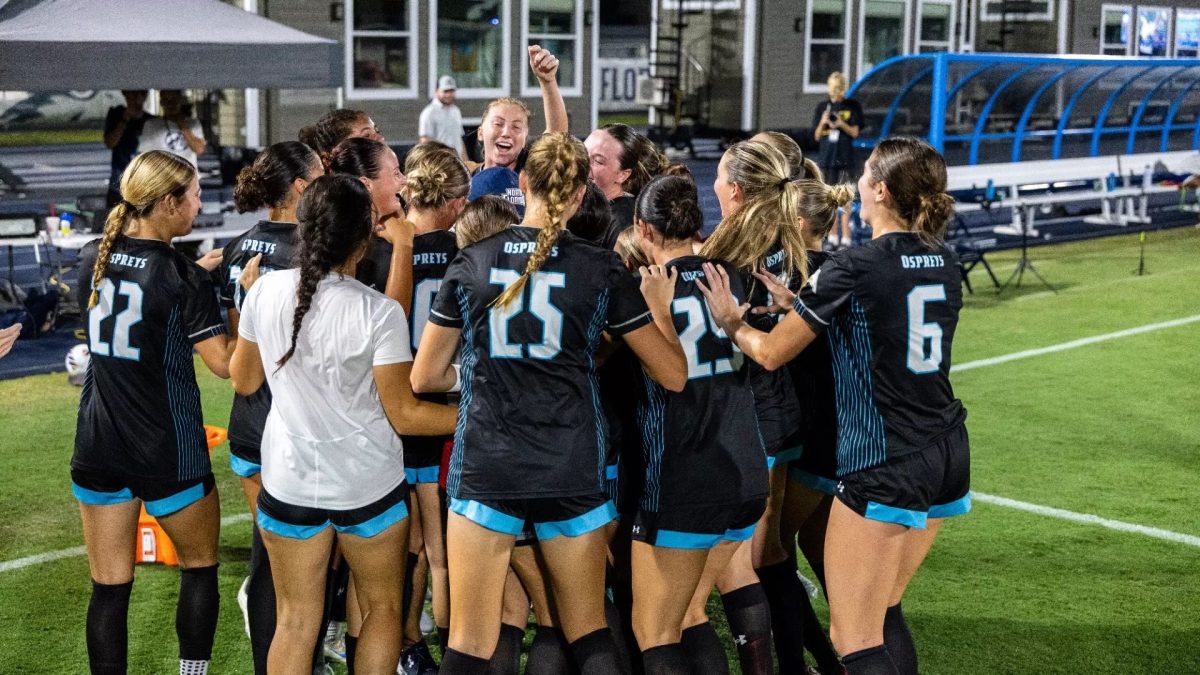By: Erin Ostrowsky, Osprey Radio News Director

After three GOP nomination contests in different states resulting in three different victors, issues of electability, financial record and political posturing continue through to Florida.
UNF will host the final televised debate in the Sunshine State Jan. 26.
No candidate holds a clear lead in the Republican presidential nomination contests, making the GOP debate at UNF a prime opportunity for them to garner support before the Florida primary Jan. 31.
Dr. Matthew Corrigan, chair of the UNF Department of Political Science and Public Administration, said the debate will play a key role in the nomination process, along with the Tampa debate, which occurred Jan. 23.
The Florida debates could prove to be a turning point in the campaign for nomination, Corrigan said. Because Romney failed to win the nomination in South Carolina, he will face a huge setback if he loses Florida, he said.
“[The Florida debates] are huge,” Corrigan said. “South Carolina stopped the Romney campaign from seizing the nomination, and Gingrich gained momentum. If Romney loses Florida, [the nomination race] is not done, but it’s a huge setback.”
Texas Congressman Ron Paul is the only candidate without a win. His libertarian-influenced philosophy of limited government attracts voters under 30, a group that isn’t expected to show their support in the voting booth.
Curtis Gans, director of the Center for the Study of the American Electorate at American University, attributes low voter projections to “a minimum of hope and a maximum of televised invective.” He said young voters are sick of failed ideas and leadership.
Paul did not spend significant advertising funds in Florida, a state filled with older citizens, as opposed to the young voter group and whose primary election allows only Republican Party members to vote.
This approach contrasts with Romney, Gingrich and Santorum, who have spent millions in advertising, in part to leverage the state’s early-voting system.
Absentee ballots play an important role in the Florida primary. Brian Hughes, a spokesperson for the Republican Party of Florida, said more than 197,000 have been cast.
As GOP candidates continue to posture and personally attack each other, real student issues, such as college loan debt and the increasing unemployment rate, are left unaddressed.
“All of what’s going on is taking place because in the evolution of the American political system,” said Dr. Patrick Plumlee, UNF associate professor of political science. “The question of how one becomes a candidate for the presidency was not specified in the Constitution.”
After former House Speaker Newt Gingrich’s landslide victory in the South Carolina primary Jan. 21, rival and former Massachusetts governor Mitt Romney increased his personal attacks on Gingrich during the Tampa debate Jan. 23.
Experts said Romney, who swept New Hampshire and was widely regarded as an easy nomination for the party earlier in the month, changed his debate approach after Gingrich’s strong South Carolina debate performances and Rick Santorum’s belated victory in Iowa.
Romney turned his focus to attacking his rivals, not addressing President Barack Obama like a presidential nominee.
On what NBC moderator Brian Williams called a “critical stage,” Gingrich responded to Romney’s comments of being “erratic” and a “failed leader” by saying he would fight the establishment in Washington.
Gingrich, a former Freddie Mac consultant, resigned as Speaker of the House in 1998 after pleading guilty to ethics violations in 1997.
In response to criticisms for withholding personal financial records, Romney released his tax information to the public Jan. 24 and said he won’t apologize for being successful because he earned his money the old-fashioned way – by working hard.
Santorum, a former Pennsylvania Senator, played a minor role in the debate but managed to question why Gingrich and Romney supported the bailout instead of allowing destructive capitalism to fail.
“Strategically, they have to give cues to voters to distinguish among them,” Plumlee said. “Their ability to deviate from the message is constrained, which is why you usually see personal attacks. They don’t fundamentally disagree.”
Plumlee said winning in Florida is a major psychological advantage because of its diversity and size – and crafting audience appeal is essential.
“Eighty percent of communication is nonverbal, and we’re watchers, not listeners,” said Dr. Christie Arnold, UNF communication professor and expert in listening studies. “The importance of appearance, confidence and open or closed gestures make a critical difference to who the viewer decides should win.”
Arnold cited the famous Nixon-Kennedy debate as a prime example of nonverbal impact.
“If you looked at Nixon, he had a five o’ clock shadow, was pale, wore a dark funeral suit and Kennedy was clean-shaven and wore makeup. He stood tall behind the podium,” Arnold said. “If you asked people who listened to the debate, Nixon clearly won. The people who watched it on television said Kennedy clearly won.”
With no clear leader emerging in the nomination campaign, Florida’s debates will be a deciding factor, putting the eyes of the state and even the nation on UNF Jan. 26.
Email Erin at ornewsdirector@gmail.com.















